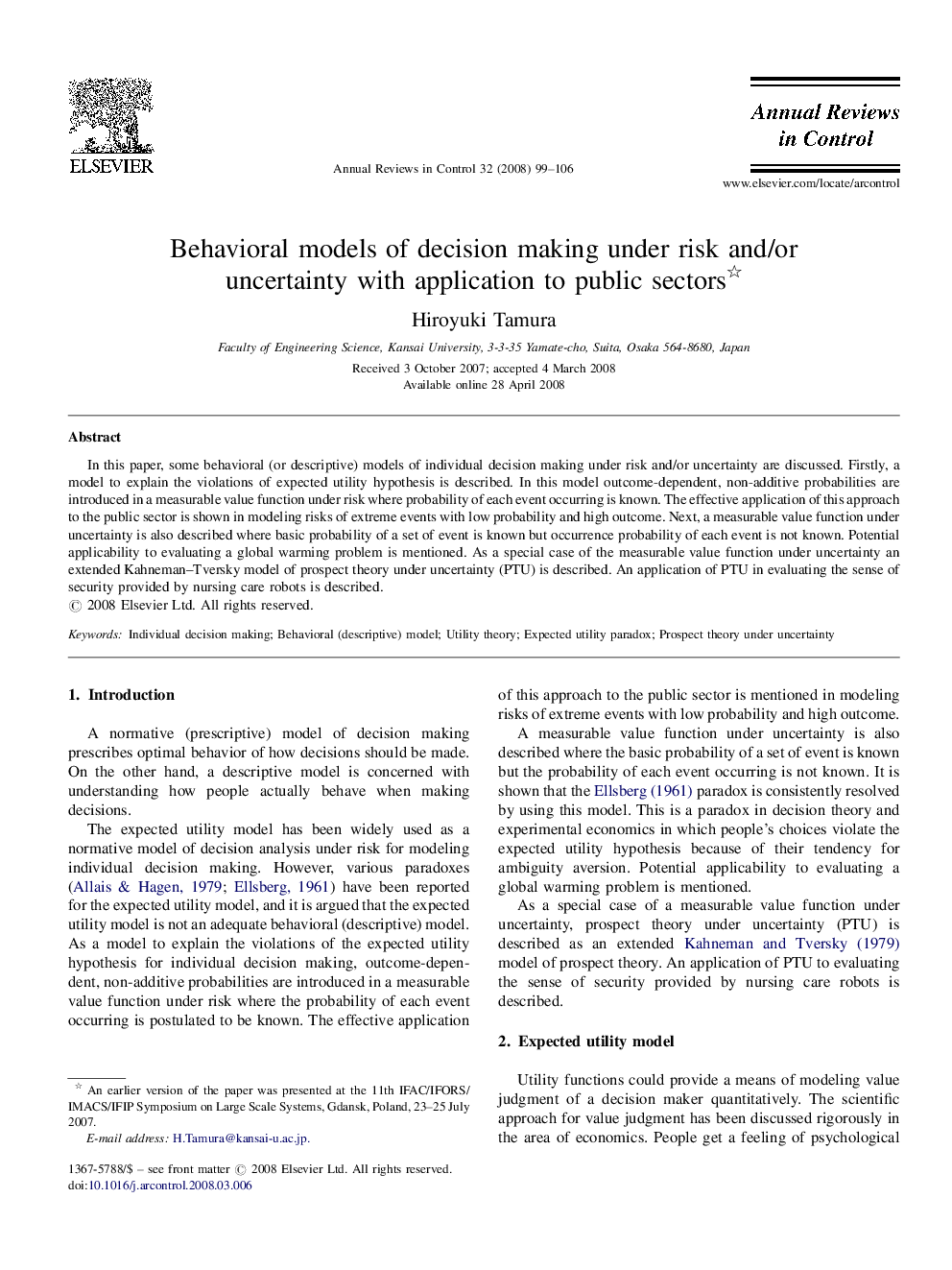| Article ID | Journal | Published Year | Pages | File Type |
|---|---|---|---|---|
| 694953 | Annual Reviews in Control | 2008 | 8 Pages |
In this paper, some behavioral (or descriptive) models of individual decision making under risk and/or uncertainty are discussed. Firstly, a model to explain the violations of expected utility hypothesis is described. In this model outcome-dependent, non-additive probabilities are introduced in a measurable value function under risk where probability of each event occurring is known. The effective application of this approach to the public sector is shown in modeling risks of extreme events with low probability and high outcome. Next, a measurable value function under uncertainty is also described where basic probability of a set of event is known but occurrence probability of each event is not known. Potential applicability to evaluating a global warming problem is mentioned. As a special case of the measurable value function under uncertainty an extended Kahneman–Tversky model of prospect theory under uncertainty (PTU) is described. An application of PTU in evaluating the sense of security provided by nursing care robots is described.
